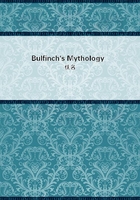
第52章
"I saw young Harry, with his beaver on, His cuishes on his thighs, gallantly armed, Rise from the ground like feathered Mercury, And vaulted with such ease into his seat, As if an angel dropped down from the clouds, To turn and wind a fiery Pegasus, And witch the world with noble horsemanship."THE CENTAURS
The Greeks loved to people their woods and hills with strange wild people, half man, half beast. Such were the Satyrs men with goats' legs. But nobler and better were the Centaurs, men to the waist, while the rest was the form of a horse. The ancients were too fond of a horse to consider the union of his nature with man's as forming any very degraded compound, and accordingly the Centaur is the only one of the fancied monsters of antiquity to which any good traits are assigned. The Centaurs were admitted to the companionship of man, and at the marriage of Pirithous with Hippodamia, they were among the guests. At the feast, Eurytion, one of the Centaurs, becoming intoxicated with the wine, attempted to offer violence to the bride; the other Centaurs followed his example, and a dreadful conflict arose in which several of them were slain. This is the celebrated battle of the Lapithae and Centaurs, a favorite subject with the sculptors and poets of antiquity.
But all the Centaurs were not like the rude guests of Pirithous.
Chiron was instructed by Apollo and Diana, and was renowned for his skill in hunting, medicine, music, and the art of prophecy.
The most distinguished heroes of Grecian story were his pupils.
Among the rest the infant Aesculapius was intrusted to his charge, by Apollo, his father. When the sage returned to his home bearing the infant, his daughter Ocyroe came forth to meet him, and at sight of the child burst forth into a prophetic strain (for she was a prophetess), foretelling the glory that he was to achieve. Aesculapius, when grown up, became a renowned physician, and even in one instance succeeded in restoring the dead to life. Pluto resented this, and Jupiter, at his request, struck the bold physician with lightning and killed him, but after his death received him into the number of the gods.
Chiron was the wisest and justest of all the Centaurs, and at his death Jupiter placed him among the stars as the constellation Sagittarius.
THE PYGMIES
The Pygmies were a nation of dwarfs, so called from a Greek word which means the cubit (a cubit was a measure of about thirteen inches), which was said to be the height of these people. They lived near the sources of the Nile, or according to others, in India. Homer tells us that the cranes used to migrate every winter to the Pygmies' country, and their appearance was the signal of bloody warfare to the puny inhabitants, who had to take up arms to defend their cornfields against the rapacious strangers. The Pygmies and their enemies the cranes form the subject of several works of art.
Later writers tell of an army of Pygmies which finding Hercules asleep made preparations to attack him, as if they were about to attack a city. But the hero awaking laughed at the little warriors, wrapped some of them up in his lion's-skin, and carried them to Eurystheus.
Milton used the Pygmies for a simile, Paradise Lost, Book I:
"----------like that Pygmaean race Beyond the Indian mount, or fairy elves Whose midnight revels by a forest side, Or fountain, some belated peasant sees, (Or dreams he sees), while overhead the moon Sits artibress, and nearer to the earth Wheels her pale course; they on their mirth and dance Intent, with jocund music charm his ear.
At once with joy and fear his heart rebounds."THE GRIFFIN, OR GRYPHON
THE Griffin is a monster with the body of a lion, the head and wings of an eagle, and back covered with feathers. Like birds it builds its nest, and instead of an egg lays an agate therein. It has long claws and talons of such a size that the people of that country make them into drinking-cups. India was assigned as the native country of the Griffins. They found gold in the mountains and built their nests of it, for which reason their nests were very tempting to the hunters, and they were forced to keep vigilant guard over them. Their instinct led them to know where buried treasures lay, and they did their best to keep plunderers at a distance. The Arimaspians, among whom the Griffins flourished, were a one-eyed people of Scythia.
Milton borrows a simile from the Griffins, Paradise Lost, Book II.:
"As when a Gryphon through the wilderness, With winged course, o'er hill and moory dale, Pursues the Arimaspian who by stealth Hath from his wakeful custody purloined His guarded gold."